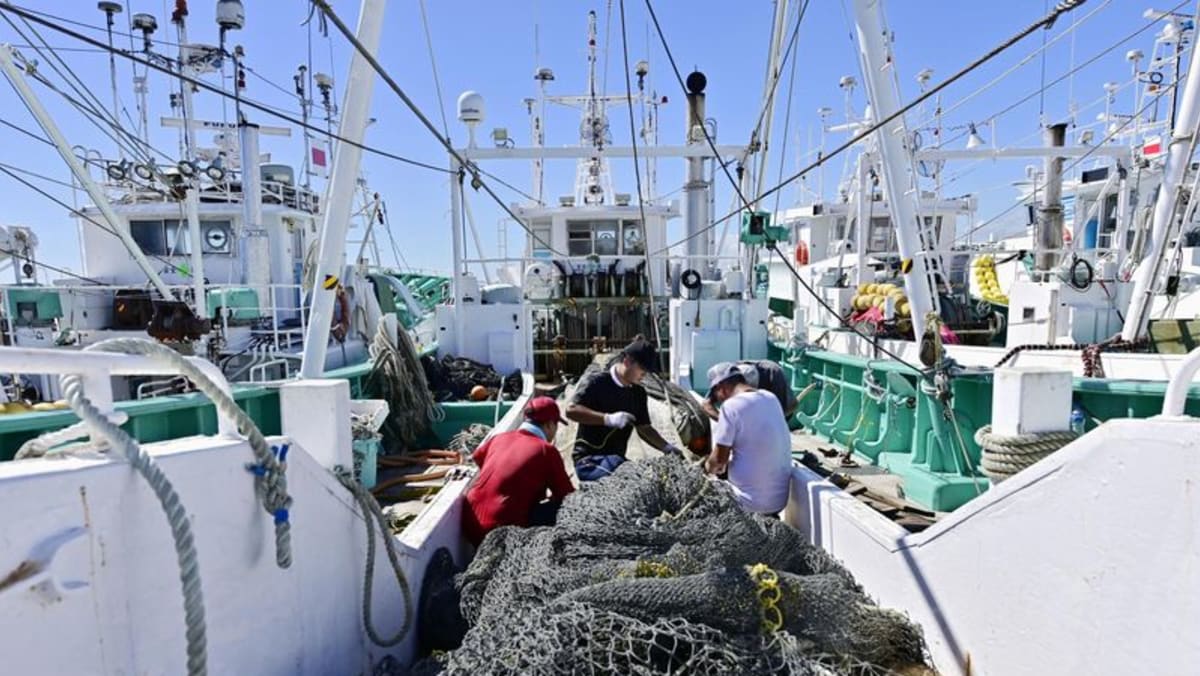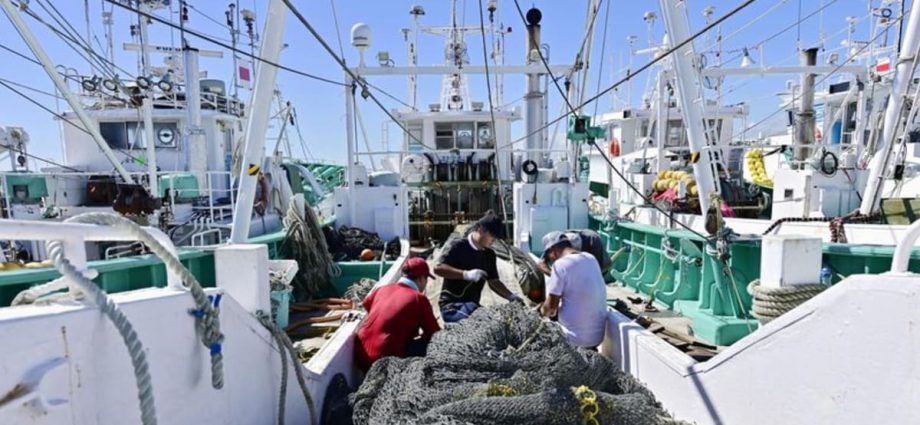
“The discharge will mean trouble for us. We will not be able to make a livelihood. We will not be able to attract successors,” he said.
He added that while fishermen like himself are grateful for subsidies from the government, they are still against the release of the wastewater.
STRINGENT SCREENING STANDARDS
Mr Egawa assured consumers that the fish going out to the market and consumed by the public is safe, with stringent screening constantly conducted.
At one of four labs operating in Fukushima since the nuclear meltdown, fish samples are sliced up and placed into a machine where the level of radiation is measured, with results revealed in five minutes. Only those that pass the test can be sold.
Mr Egawa said the local fishery industry has set a maximum permitted radiation level of 50 Bq/kg, much stricter than the 100 Bq/kg cap by the national government.
That means that seafood sold at local markets, for instance, have met tougher safety standards than at the broader national level.

